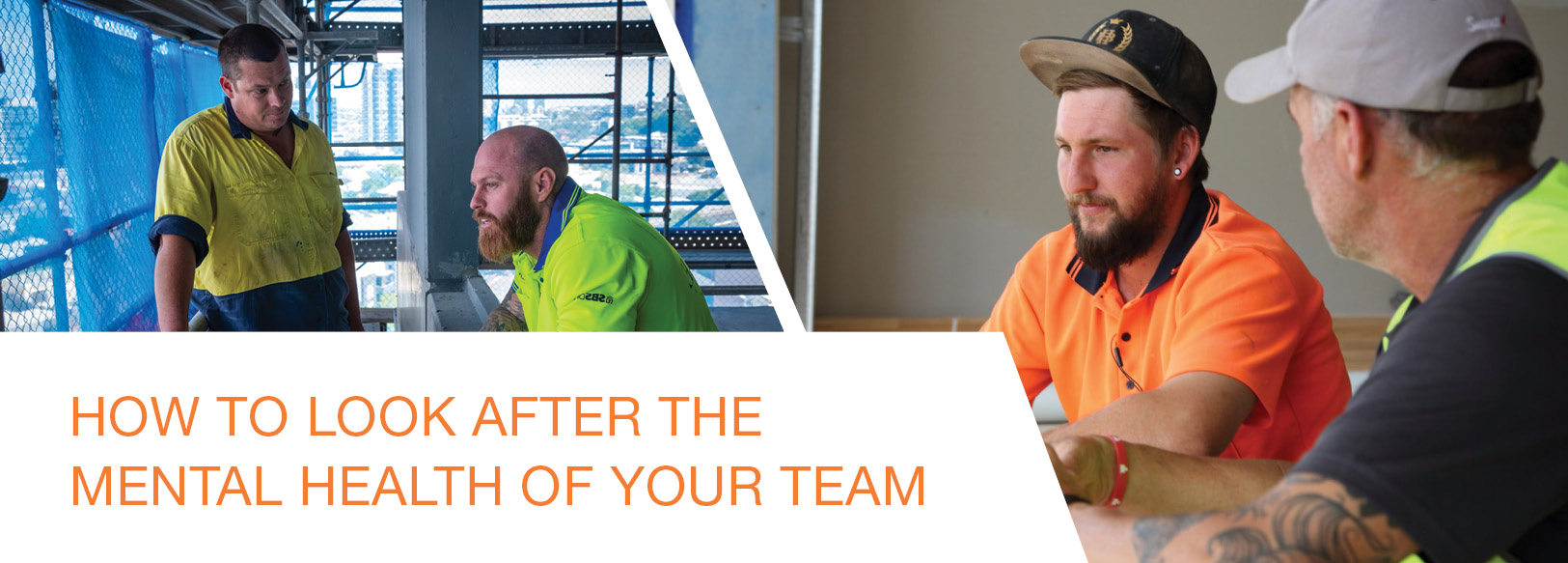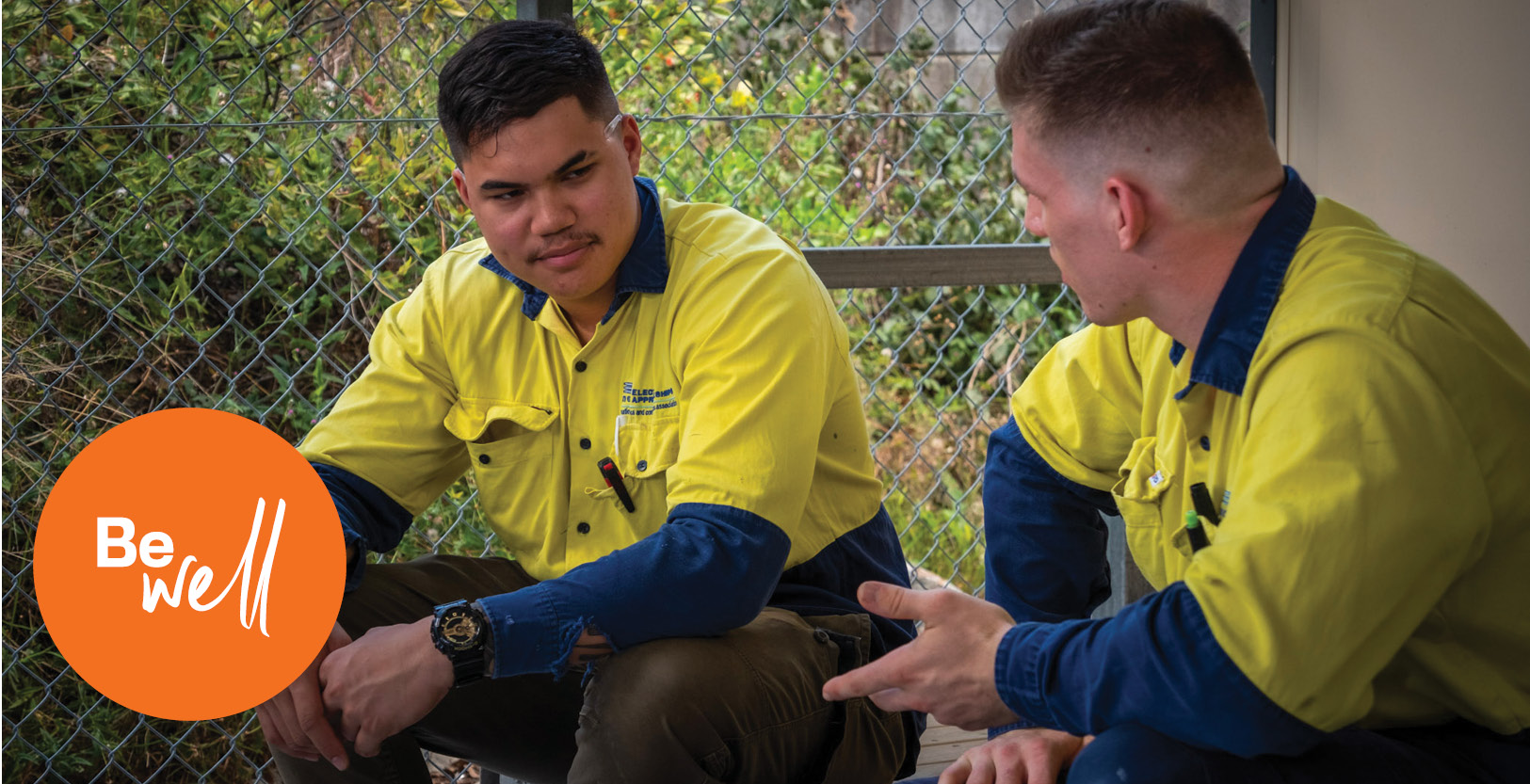We know when we’re mentally healthy, we’re able to live productive, fulfilling lives. But when we’re struggling with daily life, it affects our physical health and can lead to anxiety and depression.
Few occupations in Australia are more affected by poor mental health than the construction sector, with the rate of suicide among male trades almost double that of men in other industries.
It is common for builders and trades to avoid seeking support when they’re experiencing a mental health issue. As a cohort, we’re more likely to go it alone amidst a “blokey” culture where you may think it weak to admit you’re going through a tough time.
We spoke to mental health charities with first-hand experience working in the construction sector to understand how builders can create a work environment where people can talk about their struggles, and what methods they can use to look after their team’s mental health as well as their own.
A real problem
Firstly, it’s important to grasp the scale of the problem that’s facing the sector. According to the CEO of Mates in Construction for NSW, Brad Parker, we lose a building and construction worker to suicide every second day in Australia.
“They are on average six times more likely to die from suicide than an accident at work,” Brad says.
Risk factors
Unique challenges exist in our industry that can be detrimental to mental health. One of these challenges is a culture where workmates avoid the discussion of problems. People don’t speak up because they’re worried about being told to ‘harden up’ or ‘have a cup of concrete’.
Other major issues include:
- Long working hours
- Relationship issues – working long hours exacerbates these problems
- Heavy alcohol use
- Bullying behaviours
- Insecure work – the life of the project can be the life of the job
Not seeking help
Not only is the suicide rate extremely high among builders and construction workers, the statistics alarmingly show 93 per cent of people in our industry did not seek professional help before they took their lives.
This is the finding from the Australian Institute of Suicide, Research and Prevention report, which remains as the most comprehensive suicide study conducted in our industry.
Jeremy Forbes, the Co-founder of Hope Assistance Local Tradies (HALT), a grassroots suicide prevention charity, and a trade-qualified painter and decorator from Castlemaine in Victoria, says trades are one group who often experience mental health issues without seeking support.
“Many will not seek the help they need when they’re experiencing depression, anxiety or suicidality due to stigma and a culture that doesn’t encourage talking about mental health,” he says.
Not only are these statistics a tragedy for the people involved and their friends and families, but they also point to additional safety issues in what is a dangerous sector in its own right.
“If your mind is not on the job at hand, you’re not only a safety risk to yourself but to everyone working around you too,” Brad adds.
How to open up the conversation and support your team
It’s important to create a work environment where people can talk about their struggles and have access to support.
Know what to look for
Often builders and trades spend more time at work than they do with their loved ones, family or friends, which makes them best placed to pick up on signs when their workmates are doing it emotionally tough.
Knowing what to look for is a good starting point. What are the signs of someone struggling emotionally? What are the signs of suicidality? Here are some tips from MATES in Construction:
- Look for changes in attitude, appearance, any lack of sleep
- Listen for negative comments and cries for help even though they may be cryptic and hidden
- Call it out! Be brave enough to confront them and say, “I’ve noticed you’re not yourself lately”
- Keep someone safe while connecting them to help
- Encourage them to seek help, but ensure they’re safe and supported
Have the tough conversation
HALT emphasises the need to have the ‘tough conversation’ if you notice someone in your team could be struggling. This is the time to take that first step and have a chat because it could save a life.
“It’s critical to be able to open up the conversation if you’re worried about how someone is travelling. Be a good listener, show respect, empathy, create a space where they can be vulnerable and feel safe,” Jeremy says. “Have the tough conversation, and have as many of these as needed.”
Increase help-seeking and help-offering
Field staff from MATES in Construction provide training to workers to help them improve mental health and suicide prevention literacy, increase help-seeking and help-offering, and engage the workforce in creating a mentally healthy workplace.
“The key is to encourage help-seeking and help-offering and this is at the heart of the MATES Program. Just being a good mate can make a difference,” Brad emphasises.
Lead by example
As the leader of your team, you can choose to foster an environment where team members feel safe and supported to talk about their problems and where opening up is encouraged and applauded. Share your own challenges and worries, and discourage negativity onsite. Your team will soon understand that your workplace is a safe place.
Find support
The other crucial way to support your team is to get in touch with industry-backed and research-based charities such as MATES in Construction and HALT. These groups solely exist to help reduce the high level of suicide among Australian building and construction workers.
These organisations offer special events and programs to educate builders and trades about how and where they can get support if they need it, and they do powerful lifesaving work in the community.
“Engage with suicide prevention mental health charities that can help give you and your team a better understanding of how to look after yourselves, what support services are available and suicide prevention tips,” Jeremy suggests.
HALT
HALT’s vision is that every tradie and apprentice in Australia knows how to look after their mental health and wellbeing. The charity hosts ‘Save Your Bacon’ brekkies and safeTALK events at workplaces, hardware stores, sporting clubs, Men’s Sheds and TAFEs across Australia to raise awareness of mental health and connect people with local and national support services.
MATES
At MATES in Construction, they train building and construction workers and guide them through how to support a mate. They raise awareness of suicide as a preventable problem, and build stronger and more resilient workers. The program connects workers to the best available help and support, and partners with researchers to inform the industry around best mental health practices.
Tips to manage your own mental health
Try to be aware of how your mental health is travelling and don’t ignore the signs — be honest with yourself, and if you think you might be struggling, have the courage to identify the kind of support you need. Remember that we all struggle at different times of our lives, and you’re not alone.
While everyone is different, most people will also benefit from one or a combination of the following:
- Eat well and get sleep — lack of sleep and a bad diet can have negative impacts on physical and mental health
- Make time for you — spend time with people who are important to you and make time for yourself
- Exercise — go for a walk or run, do yoga, jump on your skateboard or bike or get out in the garden. This increases serotonin levels in the brain, making us feel good and helping us cope better
- Seek help if you’re struggling – your doctor is a great place to start. They can offer an ear to listen and connect you with further assistance



